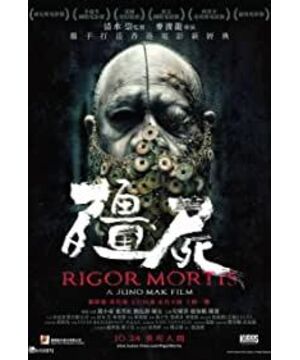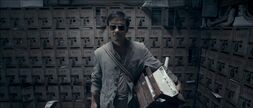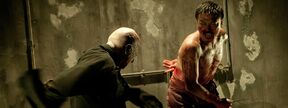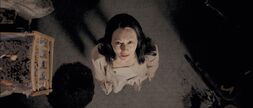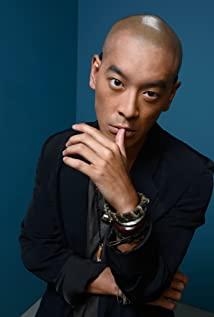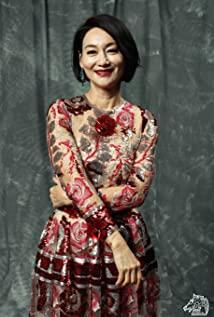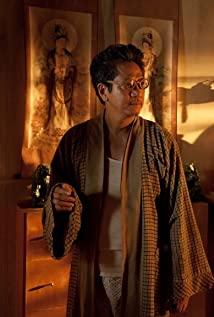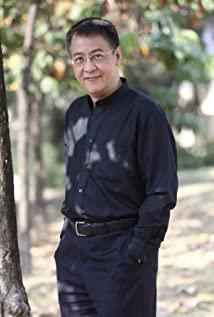"Mr. Zombie" was born in 1985. Without the superstar joining, it swept 20 million box office and ranked fifth in Hong Kong movies that year, creating the era of Hong Kong's zombie movies.
From 1986 to 1988, dozens of zombie movies were born, but more imitation than innovation caused the audience's aesthetic fatigue, and zombie movies began to decline.
In 1989, in order to revive the zombie film, Lin Zhengying actively innovated regardless of the cost. While preserving the local folklore, he boldly introduced vampires in the zombie film and launched "The Taoist with One Eyebrow". Although it was not profitable, it broadened the idea of zombie movies and was regarded as ZTE's work.
From 1990 to 1993, due to too many shoddy zombie movies, coupled with the prevalence of martial arts movies and gambling movies, audiences gradually lost interest in zombie movies, and zombie movies were hard to return.
In 1994, Lin Zhengying exhausted his efforts to film the TV series "Zombie Daoist", forcibly renewing his life for the theme of zombies.
In 1997, Lin Zhengying died of liver cancer.
From 1998 to 2004, Asia View commemorated Lin Zhengying and filmed the trilogy "I Have a Date with Zombies", using bold imagination to build a complete zombie world, freeing zombies from the heavy and deadly image of the past, and on both sides of the strait The three places once again set off the "zombie fever", but after all, they couldn't change their fate. In the next 10 years, zombie movies gradually withdrew from the film and television industry.
In 2014, Mr. Mai Junlong invited Qian Xiaohao, Chen You, Zhong Fa, and Wu Yaohan who had filmed the theme of zombies that year to shoot "Zombies/Seven Days Rebirth" to pay tribute to the once brilliant zombie movies in Hong Kong. In the same year, Xu Guanying, who had a brilliant performance in "Mr. Zombie", passed away. Only Qian Xiaohao was left in the trio of "Mr. Zombie" that year.
Tribute and innovation of Mai Junlong
"Zombie" is about a down-and-out male actor who is used to playing zombie movies. Because of the decline of zombie movies, his career has plummeted. After his wife was separated, he planned to hang himself in the house and was rescued in time by Ayou who was hidden in the city.
There are a lot of shots in the whole film paying tribute to Lin Zhengying's zombie film.
1. The classic soundtrack of "Ghost Bride".
2. Old photos taken by Qian Xiaohao when he was shooting "Mr. Zombie"
3. "People divide the good and the evil, the good and the evil," pay tribute to "Mr. Zombie".
4. Use a mirror to show the shape of a female ghost in tribute to "The Taoist with One Eyebrow"
When other films pay tribute, the audience smiles more knowingly, but these tribute shots of "Zombie" more arouse the audience's sadness. Freezing the frame on that old photo and looking at the familiar faces will only make the audience sigh. Lin Zhengying, who pioneered the zombie movie, has gone, Xu Guanying also left during the writing of the "Zombie" script, and the others are also old. And this sad mood, when Brother Jaeyou said, "I don't have to catch zombies, but I have to switch to fried glutinous rice." It turned into a bitter smile at the corner of his mouth. Taoist priests who were supposed to catch zombies were so helpless and unwilling to fry glutinous rice because there were no zombies.
In addition to using tribute to create a heavy atmosphere, another feature of this film is bold and innovative. Thanks to the participation of Japanese horror master Shimizu Takashi, "Zombie" is different from the previous Hong Kong zombie movies. The whole film exudes a strong taste of Japanese horror movies, whether it is the tone of the movie or the portrayal of twin ghosts. See the shadow of Japanese horror movies. However, Mai Junlong is right, the core of the story is still the zombie, Shimizu Takashi's role is more a technical guide, and there is no overwhelming attention. Junlong Mai successfully combined Japanese horror and Hong Kong zombies. At the same time, in terms of props, he also made bold innovations, such as:
Changed the copper coin sword that can slash demons and devils into a copper coin mask that can suppress corpses.
Change the previous practice of opening altars to catch zombies, and use Luo Geng to open the five elements barrier, which shows more folk customs characteristics.
The most imaginative thing is that he combined ghosts and zombies together. In general, the possession of ghosts in Hong Kong movies is possessed by people, and ghosts and zombies are two different themes. In "Zombie", the twin female ghosts "have souls but no souls", and zombies "have souls but no souls". Once the two meet, they will become extremely stiff and very creative.
While paying tribute, Mai Junlong has made a lot of conceptual innovations, so that "Zombie" will not be reduced to a movie with fried rice and sentimentality.
Obsession and good and evil
Unlike previous movies that catch zombies, "Zombies" is full of Buddhist cause and effect. In "Zombies", Mai Junlong did not emphasize who is good and who is bad, and he does not intend to explore good and evil in the movie. He wants to explore a deeper level in the movie: obsession.
The people in the movie have their own obsessions, and they have things they can’t let go:
Qian Xiaohao can't let go of his career and family obsessions;
Aunt Mei can't let go of her obsession with her lover;
Ah Jiu can't let go of his obsession with life;
Even the most unrestrained friend, he has something that he can't let go of: He has always been worried about his father's death, and is even more dissatisfied with this world that he doesn't need to catch zombies by himself, so he has never thrown away the law at home. Device.
If a person's obsession is too deep to let go, it will eventually turn into a tragedy. So Qian Xiaohao moved into the estate to commit suicide, and Ah Jiu would not hesitate to kill Uncle Dong to refine the corpse, and accept the twin ghosts for his life.
In order to ensure that he succeeded in borrowing his life, Ah Jiu made a lot of preparations, such as:
Put a coin mask on the zombie and use the coin to crush the corpse
Use Chinese medicine to cover up the smell of corpses
Made a puppet to control the zombies
Thousands of calculations, Ah Jiu has always missed people's obsessions. Since he is greedy for life and does not hesitate to kill, then what can Aunt Mei do to revive Uncle Dong? Persistence is not good or bad, only deep or shallow. And good and evil, good and bad, are never fixed, and they are not constant. If the obsession is too deep, good people will do terrible things:
The transformation of Aunt Mei in the movie is the most shocking. Aunt Mei has a very good heart. She not only helps the neighbours to make up their clothes for free, but also helps them with their children, but she is such a kind person who does not hesitate to kill in order to resurrect Uncle Dong. In fact, since Aunt Mei, in order to keep the secret, she did not hesitate to kill the kind Uncle Yan, everything was no longer within the control of Ah Jiu. Before Xiaobai went into Aunt Mei's house, Aunt Mei had already taken off the mask. As long as Uncle Dong could come back, Aunt Mei didn't care if it was a person or a zombie. Perseverance into the heart, and even become a demon.
Xiaobai's "Aunt Mei, I want to go to the toilet" directly broke Aunt Mei's last bottom line: Since it doesn't work except for the mask, then try the boy's blood.
In the eyes of the director, good and evil are between this thought, and this "thought" is what we don't want to let go, what we cling to. If you let it go, Jiu won't want to take his life, and Aunt Mei won't kill so many people. Where are the zombies coming from? In this sense, why is it stiff? The zombies are the obsessions in people's hearts due to rigidity. What the movie wants to express is obviously more profound than previous zombie movies.
Let me be the protagonist again
When Aunt Mei put down her obsession and committed suicide, many viewers breathed a sigh of relief. However, Mai Junlong's ambition is obviously more than just shooting a zombie movie with a tragic ending. The director suddenly reversed the scene to the moment Qian Xiaohao first entered the estate:
He dragged his luggage into the village alone and saw Mipu’s boss burying his friend, and when he passed the security pavilion, he saw Uncle Yan lying on the table sleeping. He entered the elevator alone and met with him. When Xiaobai came home, Afeng said hello with a smile. He passed Aunt Mei's house before arriving at 2442, saw the portrait of Uncle Dong, and finally walked into 2442 and hanged himself.
No one saved him, he really died. Everything is just his dying fantasy. Mai Junlong believes that just changing the zombie movie of the past comedy into a tragic ending is not profound enough. This kind of tribute can be done by any director. So he chose the saddest and most desperate ending for "Zombies": everything is just the fantasy of a downturned actor on the verge of death. He was as brilliant as zombie movies, but after all he could not stop the wave of the times, and was slowly forgotten by the world. He couldn't accept such an absurd reality. As he died, he turned the obsession in his heart into the last zombie drama, hoping to be the protagonist again before he died, even if he died, he would die vigorously in the battle with the zombies. middle.
This ending directly elevated the idea of the whole movie "Zombies", but it also poured cold water on the audience. The zombie movie was really dead, and already dead, just like Qian Xiaohao's corpse in the autopsy room, as cold as the body of Qian Xiaohao in the autopsy room. .
This last shot is the only time in the film to tell the audience the name of the male protagonist. From the beginning to the end, the film doesn’t say what the protagonist’s name is, and we don’t know it. It can only be inferred from some details, except I mentioned at the beginning. The still picture of "Mr. Zombie" that arrived, as well as this old photo, this one is "Yuan Zhenxia and Wesley", taken in 1986.
The old costume given to the male protagonist before he committed suicide was worn by Qian Xiaohao when he played Dong Tianbao in "Tai Chi Zhang Sanfeng".
If you don’t look at the cast, how many people know who the protagonist is? More of a kind of "Why does this man look so familiar? What is it called?" "In which movie do I seem to have seen him?". The actor is so cruel, but so. What about zombie movies? How many viewers still go to the zombie movie now? Qian Xiaohao once said when he promoted "Zombie Scavengers", "It has been 31 years. I did Lin Zhengying back then. Why? Because Master Zhengying has gone to another place. Where are the others? Xu Guanying and Wu Ma have all gone. Other places." What he didn't say was that the zombie movie went to another place.
In fact, we all know that the zombie movie is dead, but when we see the various innovations of "Zombie", we can't help but hope: Maybe it will come back? Mai Junlong said in an interview: "I prefer heavy movies. I believe there is always hope in movies, even if there is only a little hope. In this story, a person decides that he does not want to go on anymore, and he leaves. When there are some elements that make him have a sense of pride or hope, even if there is only a little, I think it is that feeling." And the ending he gave is that all this is Qian Xiaohao’s dying scene Dream, and where is the hope? The satisfied smile when he died.
Desperate? Desperate, who would have thought that there was only one person left in the zombie trio in 1985, but this person was broken because of a career decline, hanged himself, and still can't let go of obsession before committing suicide, hoping to be the protagonist again and die in the vigorous zombie battle. Is there any hope? Yes, don't you see that smile? Even if you die, you can be the protagonist again and return to the familiar world of zombies. What's not satisfying?
When I was writing this film review, I had cut to the scene of the last autopsy room many times. How I hoped that when Zhong asked: "Is he your precious relative?", the boy did not answer, but jumped like a zombie. Issued next clock. Unfortunately not, only the voice of Director Mai Junlong "I am his son" echoed in the autopsy room.
In fact, we all know that the zombie movie is dead, but when we see the various innovations of "Zombie", we can't help but hope: Maybe it will come back? After all, it's just a big dream. Indeed, this ending is very ruthless, very cruel, but I have to admit that it is a very good ending, and it is the best tribute to the zombie movie: Thank you for your company, but we failed to take care of you, sorry Up.
After so many years of this dream, it's time to wake up.
Mandarin version and Cantonese version
The Cantonese version of "Zombie" and the Mandarin version have very different viewing effects. The first is that the dubbing of the Mandarin version is inconsistent with the atmosphere created by the background music, which sounds very abrupt and difficult to enter the scene.
The second is the question of lines. The mandarin version omitted the foul language, and the foul language of Brother You and Lankoudong must not be omitted. Rough language is not only used to swear, but also an indirect manifestation of the character's personality. For example, the conversation between Qian Xiaohao and Brother You in front of Mipu.
Brother Friends: "Every bit of rice is worth a few twists... Taoist priests are glutinous rice with their bodies, and the relationship between Taoist priests and rice shops has been passed down from generation to generation. Ikea talks about Taoists, and zombies are not smashed."
Translated into Mandarin, it should be: The rice at that time is worth more than JB... Taoist priests never leave their bodies, and the relationship between Taoist priests and rice shops has been passed down from generation to generation. In my first generation, don't JB talk about taxis, zombies are gone.
The Mandarin version of the dubbing deleted the foul language.
Brother You has followed his father all over the world since he was a child. When he arrived at the estate, he planned to live for a few days. His father would leave after he came back from the ghost. He didn’t expect his father to lose his hand. He never came back and left Brother Friends here alone. Just a few decades. In a sense, Brother You was abandoned by his father. And my father usually teaches what he has learned to his brother. When he grows up, he is likely to inherit his father's inheritance. As a result, the world changes too fast and the zombies are gone... Your brother is abandoned by the world. I’ve been alone here for decades, full of dissatisfaction with my father, and full of dissatisfaction with the world, so my brother's clothes are very casual: old bathrobe + old vest + old shorts + take off shoe. Compared with other people, it is uninhibited to say that it sounds good, and it is not to be influential to say that it is not good. And his foul language is a manifestation of his dissatisfaction and frustration with the world. Only the Cantonese mixed with foul language can never express this taste. Once it is changed to Mandarin, the taste will change, and the character of Brother You will be greatly reduced. And Uncle Dong is called "Rotten Mouth Winter" because he is full of swear words, and Putonghua harmonizes the vulgarity. What is the name of Bad Mouth Winter?
Three versions of zombies and regret
There are three versions of "Zombie", the first is the III version, which is the version released at the Venice Film Festival. The second version is the IIB version, which is the version we download from the Internet now. Compared with the III version, many deletions have been made. The third version is the director's editing version. Mai Junlong once said that if there is time, he will make an editing version, the time is 135-150 minutes, but until today there is no editing.
The scene of the ghost of the tall feet was originally related to Xu Guanying and Lou Nanguang, which belonged to a branch line, but before the script was finished, Mr. Xu Guanying passed away. Mak Junlong decided that other people could not act out the feeling he wanted, so he cut off this branch, leaving only the appearance of the tall ghosts, used to create an atmosphere of horror and to embody the previous saying that "there are ghosts in the house" in Hong Kong. change. After the death of Mr. Xu Guanying, Mr. Wu Ma, who played the boss of Mipu in "Mr. Zombie", also died of terminal lung cancer in 2014. He played Yan Chixia in the 87 version of "A Chinese Ghost Story".
Sapo rolls around for attention:
View more about Rigor Mortis reviews


